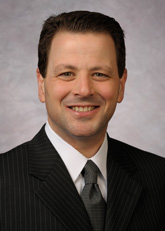Deception and Distraction: An Inaccurate Report on Health Benefits Remains Inaccurate Nearly 4 Year later
Recently the Asbury Park Press published a story based on a widely criticized and discredited State Comptroller’s 2012 report examining the state of health benefits for public workers of municipalities, county governments and school districts. The report, which was panned by most benefit and insurance professional at the time as being actuarially and statistically invalid, also failed to accurately reflect the process local governments must use when selecting benefits for its employees. The report made for good headlines, but it didn’t make for good policy.
The takeaway of the report was that local entities in New Jersey — counties, townships, boroughs, school districts — could simply join the state health benefit plan and save the state $100 million dollars. But that wasn’t correct then and it isn’t correct now. The report overlooked the fact that benefits are collectively bargained for and can’t simply be changed on whim or all at once. It also made the false assumption that just by merging all the groups across the state, their claims history, which is how insurance policies are priced, would miraculously get better and generate savings. Finally, the report largely blamed local benefit brokers and consultants for the high cost of health care for public plans even though the cost of brokerage services is about 2% to 3% of the total cost of healthcare. The state plan is a solution for many public employers as are other private plan options. The key is to examine all of the options and align the entity with the best solution for their circumstances.
The report was largely discredited and dismissed at the time of its issuance by industry experts for being naïve and non-factual. But because it includes an eye-popping alleged savings number, the nearly 4 years old report is regularly dusted off and re-circulated by political operatives and media types looking to re-create a controversy that never existed.
Yes, the cost of health care in NJ and across the nation is debilitating, but the issues and challenges related to this issue have nothing to do with whether a NJ public entity is in the state plan, is in a private plan or uses a broker. In the case of NJ, the issues have to deal with generous benefits; a complicated system of collective bargaining and a national health care system that remains broken and is costly and overly complex. To suggest that by placing all public workers in a state pool and eliminating brokers will fix the ongoing problem of too high health care costs (or even make a dent in it) is demonstrably false. The inability of the federal Affordable Care Act’s failure to make any real dent in rising health care costs is proof that enlarging an insurance pool does not reduce costs like many hope.
Rather than relying on an outdated and discredited report, the recent bi-partisan report, The Roadmap to Resolution, speaks to a mounting set of issues and problems. The report, presented to the NJ Governor and the NJ State Legislature in February of this year, does not suggest, or even mention, the creation of a large state plan nor does it point to benefit brokers as being a part of the cost crisis in NJ. Correctly, the report finds that broad sweeping changes to coverage levels are needed, along with a push towards wellness and population health and other systematic and structural changes that may improve health care costs.
It is unfortunate that special interests are looking to change the subject and create distractions from the real issues challenging public worker health care costs in NJ. Re-circulating a discredited 2012 report that has long since been sent to the archives allows too many to bypass having to deal with the real issues. Thankfully, most won’t be fooled by these distractions. It is my hope that responsible parties will continue work hard to find real solutions rather than just making headlines.
Joseph M. DiBella, a former Mayor of Howell Towhship and Managing Director, Health and Benefits Practice at Conner Strong & Buckelew, still reads the Asbury Park Press












Really Art? You posted a propaganda piece by a Managing Director of a health insurance broker? Is it so surprising then that he pans the “paltry” 2 to 3% that funds his company as inconsequential? Remember that 3% of $100m is still $3m. His points may or may not be valid, but his personal interest invalidates anything he says.
So we’re supposed to rely on the self-serving interests of these “industry experts?” One question: If this plan works along the same lines as a life insurance policy wherein the broker can make over 200 percent of the first year’s fees (and possibly even more depending on the payout plan) how would eliminating the broker not result in a savings benefit?
a person’s expertise in his chosen field, and his living gets criticized..far as I’m concerned, better to have the free market and competition among various firms in each industry dictate profits (aka, somebody’s salary/ living wages,) and not the blasted government.. sounds like a growing industry others might want to work in,too…As an aside, in my personal opinion, Mr. DiBella has really matured politically, was a good public servant who tried to do the right thing for a huge and growing, multi- cultural town,and would make a terrific county freeholder!..